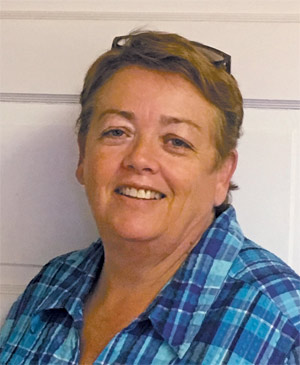
By Debbie Gardner
debbieg@thereminder.com
Sharon Ashton knows all too well what families should look for when they come home for the holidays and something seems “amiss” with parents or other loved ones. A nurse for more than 30 years, she’s worked with elders in assisted living, long-term care and sub-acute rehabilitation, and served as president of the local Alzheimer’s Association for six years.
“It can be very scary to notice changes in our parents,” Ashton told PRIME. “I know we would all prefer to have the ‘status quo’ remain for as long as possible. We even turn a blind eye because the changes are too painful to acknowledge.”
Recognizing that it’s hard to know where to start, Ashton provided this advice to families encountering a new “normal” with a loved one:
Q: What are subtle signs an elder might be having difficulty living on their own?
"While you are visiting your loved one, take a careful look for these three signs of potential trouble:
“How’s the environment? Is the home in disrepair? Are the lights working? Is the heat on? Are medication bottles outdated? Check the refrigerator to see if the food is old, or uneaten. Is the mail piling up? Signs of scorching on the bottom of pans is a serious sign of memory loss and can be dangerous.
“How are they physically? Are there any signs of confusion? Any weight loss or weight gain? Are their clothes being changed is laundry being done? Check the bar of soap; if it is hard and cracked, that’s a sign of not bathing. How is their grooming – hair, shaving, fingernails and toenails? Is your loved one using their adaptive devices, such as glasses, hearing aids, walker and dentures?
“How’s their behavior? Do they seem withdrawn, maybe depressed, crying, listlessness or despair? Changes in mood can all be indications of a problem. Missed doctor’s appointments and repeated phone calls at odd hours are also a sign of memory loss, and reason for concern.”
Q: If you see trouble, how do you start a conversation about it?
“Sometimes elders won’t admit they need help, and others don't realize they need help. That’s where you come in. Make sure you have time to listen. Don’t start an important conversation if you need to walk out the door in the next five minutes. Talking to elders requires an investment of time and patience. Make sure your loved ones understand the problem and your proposed solution. Remind them that you care about them and that you want to help promote their health and well-being, both today and in the years to come. What you’re trying to establish is an ongoing, honest conversation about everything related to your loved one’s future. You don’t need to try to get the answer you want today
“Consider including other people who care about your loved ones in the conversation, such as other family members, close friends or clergy. Contact their doctor for guidance. If your loved one dismisses your concerns, consider contacting the doctor directly. Your insights can help the doctor understand what to look for during upcoming visits.”
Q: Once everyone agrees something needs to change, what’s the next step?
“The first step is to see an Elder Care Law Attorney to get all the paperwork in order – Health Care Proxy, Power of Attorney and Will. Finances will determine if your loved one can afford private care in the home or in a center. Most elders want to stay in their home as long as possible; a private home care agency can be very helpful. You can receive services from two to 24 hours, including help with bathing, dressing, meals, med reminders, and errands. Your local Area Agencies on Aging (AAAs) are local aging programs that provide information and services on a range of assistance for older adults, such as meals on wheels or senior housing. If remaining at home is too challenging, you might suggest moving to an assisted living facility.”